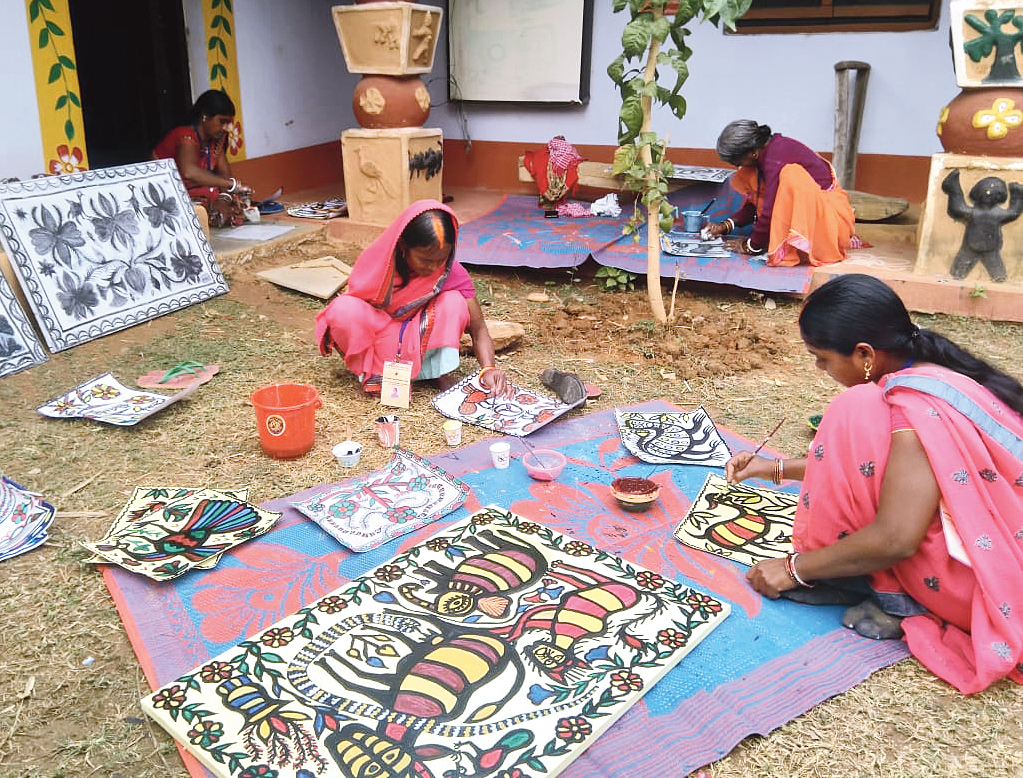There is a lot to learn from the way indigenous artists tell stories through a curious blend of colours, creating an independent style in the process.
The five-day tribal art workshop that came to an end at Amadubi Rural Tourism Centre in Panijia village of Dhalbhumgarh, about 60km away from Jamshedpur, on Saturday offered the younger generation a peek into some of the oldest art forms of Jharkhand.
Organised by the Eastern Zonal Cultural Centre (EZCC), an autonomous outfit under the Union cultural ministry, along with Jamshedpur-based NGO Kalamandir, the workshop witnessed the participation of 15 tribal painters from Ranchi, Deoghar, Seraikela and East Singhbhum.
It featured pyatkar, sohrai and kohbar paintings of various tribes of the state.
EZCC had sent invites to the nearby private and government schools to attend the workshop-cum-camp. Students from around seven schools participated.
Each day of the workshop witnessed around 30 visitors.
The 20 paintings that were created at the camp have been bought from the artists by the EZCC.
Ajay Biswas, a tourist from Hooghly in Bengal, said: “We had not seen a tribal art camp before. We had come to Jamshedpur for a picnic and on our way back we decided to visit this. I am glad we came.”
Devla Murmu from Kalamandir said: “The number of good tribal artists are dwindling. It is our responsibility to preserve the indigenous forms of painting. That can only be possible if more people learn about the art forms.”
While pyatkar paintings, from Amadubi village tell folklores with natural colours, wall paintings with kohbar by Santhal, Munda, Gond, Kurmali usually depict harvesting and agriculture stories.
Sohrai paintings of the Santhals from Hazaribagh which initially used white clay are now done with lime.











